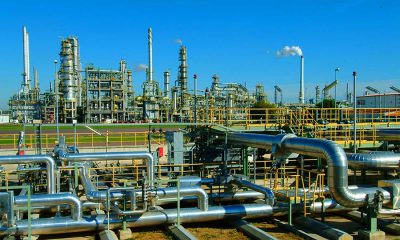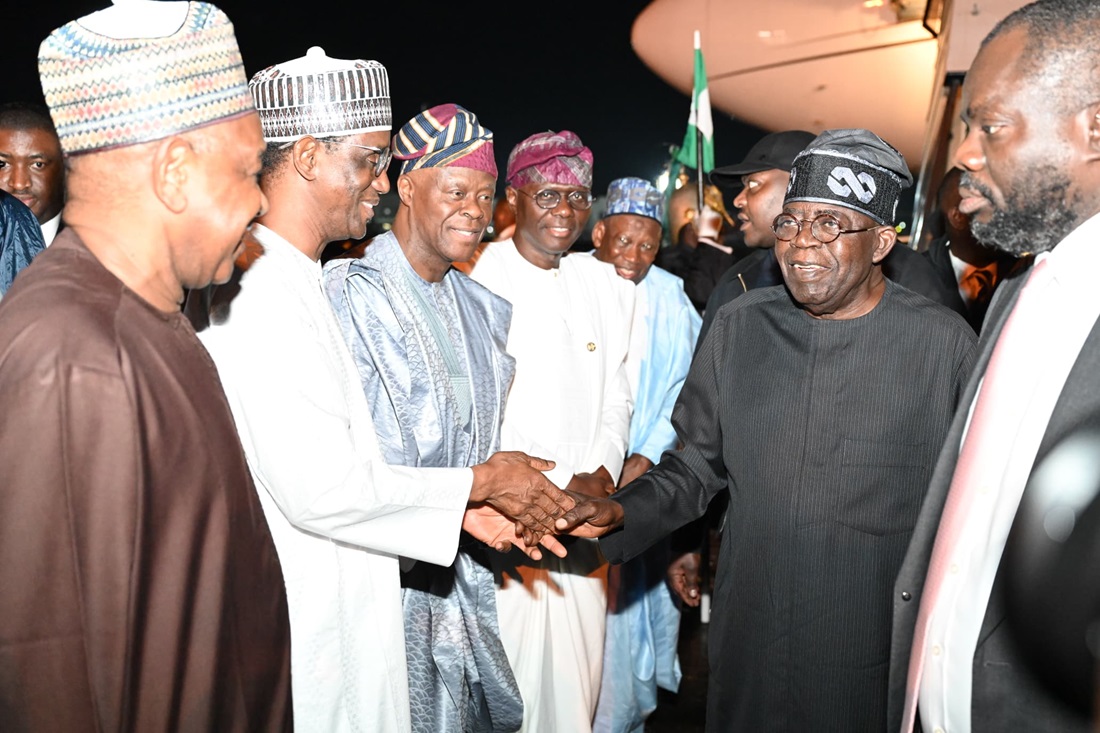Travel/Tourism
Nigeria Signs $5.1b Rail Deals With China

By Dipo Olowookere
Two contracts worth $1.5 billion have been signed by the Federal Government with the China Civil Engineering Construction Corporation for the construction and modernisation of rail lines in different parts of the country.
These are the Kano-Kaduna Segment 3 of the Lagos-Kano rail modernisation project with a contract sum of $1.68 billion, and the Calabar-Port Harcourt Segment 1, which extends to Onne Deep Seaport of the coastal rail project at a cost of $3.4 billion.
According to the Minister of Transportation, Mr Rotimi Amaechi, who signed on behalf of the FG, the segmentation of the same contract in line with its resolutions with the China-Exim Bank.
Mr Amaechi said the government would release its counterpart funds as quickly as possible, adding that with the cooperation of the China-Exim Bank, the projects would be completed in November 2018.
In a statement issued by his Ministry on Thursday, Mr Amaechi noted that he has “assured Mr President that we need to complete these projects in two years.”
Managing Director, CCECC, Mr Jack Li, assured the Federal Government of his company’s readiness to complete the projects in two years as this would benefit the travelling public.
He added that with the completion of the standard-gauge Abuja-Kaduna rail project, Nigeria had entered a new era in the transportation sector.
On Monday, the China Railway Construction Corporation announced that it had won a $1.851bn contract to construct the Kano city light rail, as its directors had received a provisional letter of award from Nigeria.
The CRCC had stated that the rail, with a total length of 74.3km, was expected to travel at a speed of 100km per hour.
Rail transportation received a boost in Nigeria on July 26 this year when President Muhammadu Buhari inaugurated the Abuja-Kaduna commercial train operation after a series of postponements.
The modernisation phase of the project had commenced with the signing of the contract for the construction of Abuja (Idu) to Kaduna (Rigasa) rail line in 2009.
Buhari had said the rail line would significantly enhance and provide affordable and safe movement of passengers and freight between the Federal Capital Territory and Kaduna State.
He noted that the train operation would also serve as a major catalyst for industrialisation and generation of employment.
Travel/Tourism
Middle East Tension: Nigeria Halts Pilgrimages to Israel
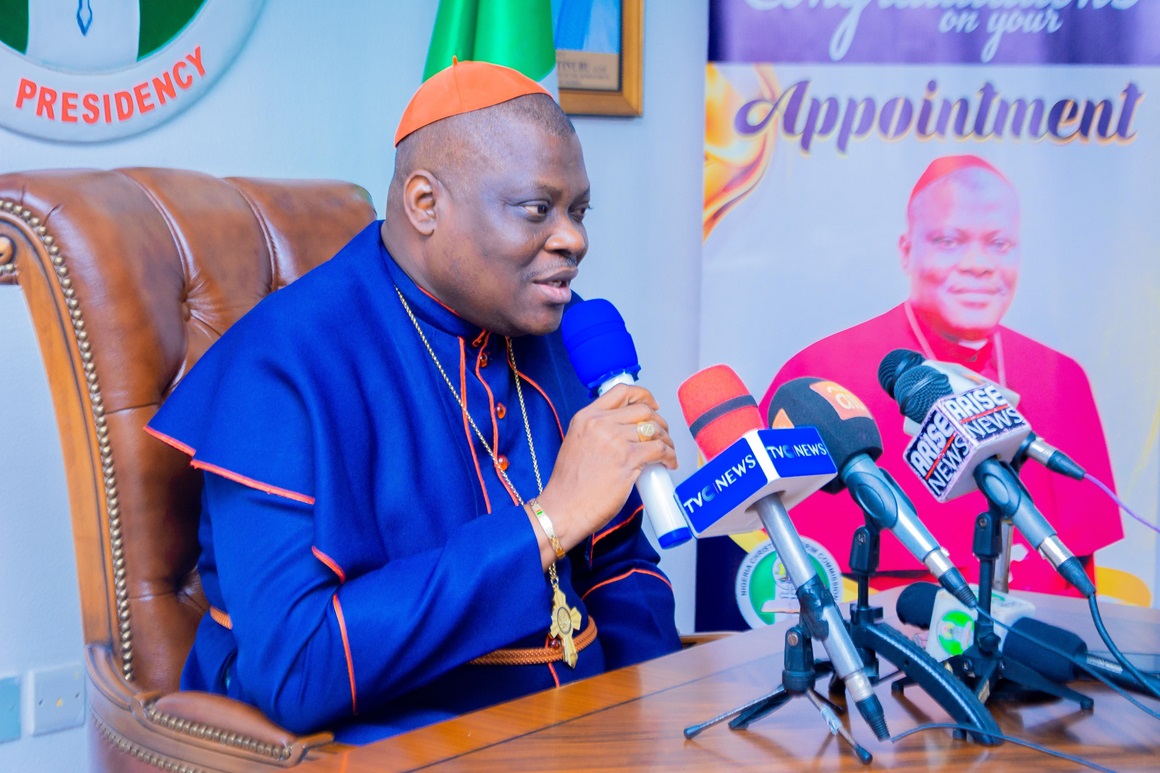
By Adedapo Adesanya
The Nigeria Christian Pilgrim Commission (NCPC) has suspended pilgrimages to Israel and all other Middle East nations owing to the escalation of tensions in the Gulf region.
The Executive Secretary of NCPC, Bishop Stephen Adegbite, said during a press briefing in Lagos on Tuesday that every pilgrimage of the commission, as well as of the private pilgrimage operators, has been suspended until security in Israel and all the Middle East returns to normalcy.
Bishop Adegbite also assured that the over 500 pilgrims that made up the last batch of the 2025 pilgrimage have safely landed in Nigeria on Tuesday.
Recall that the United States and Israel have carried out waves of airstrikes across Iran, and Iran has retaliated with drone and missile attacks against US-aligned countries across the Middle East.
The campaign has killed several of Iran’s top military and political leaders, including the supreme leader, Ayatollah Ali Khamenei.
Iran retaliated the death of its supreme leader by targeting US military assets in several Gulf countries, with missiles reportedly striking sites in Bahrain, Qatar, Kuwait, and the United Arab Emirates (UAE).
The US military has acknowledged the deaths of six service members, while the Iranian Red Crescent Society said more than 500 people have been killed in the country.
This development has made the region unstable and puts Nigerians making pilgrimage to the Middle East at risk.
Travel/Tourism
Festive Travel Surge: FCCPC Flags Fare Manipulation by Airlines
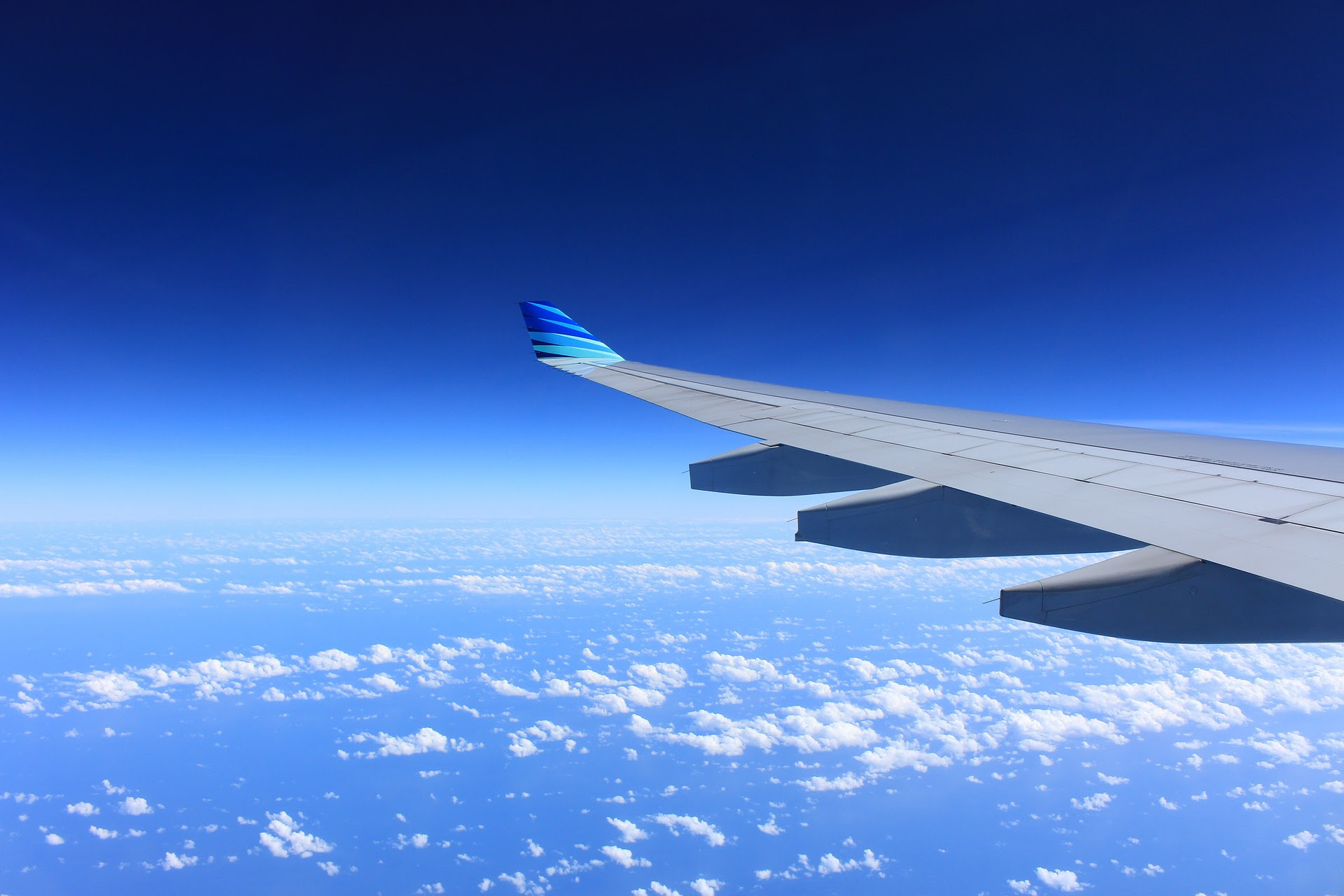
By Adedapo Adesanya
The Federal Competition and Consumer Protection Commission (FCCPC) says its investigation uncovered how airlines manipulated flight fares and fixed prices arbitrarily during the last Christmas and New Year’s holidays.
The findings, contained in an interim report released on Thursday by the commission’s department of surveillance and investigations, compared domestic airline pricing from the December 2025 festive period with post-peak January 2026 fare levels.
The FCCPC, in a statement signed by its director of corporate affairs, Mr Ondaje Ijagwu, said it established cases of price fixing by local airlines, documented abuse during the festive season, and would soon begin a probe of foreign airlines, following its ongoing country-wide investigation, which was announced earlier in January.
“A review undertaken by the Federal Competition and Consumer Protection Commission (FCCPC) has uncovered patterns of price manipulation perpetrated by some local airlines during the last festive season. The forensic exercise benefitted from data collated by the commission from airlines operating local routes in the country,” the report said.
The report compares domestic airline pricing from the December 2025 festive period with post-peak January 2026 fare levels.
The FCCPC’s preliminary analysis indicated that fares recorded during the December peak period were materially higher than those observed in the post-peak period across several routes despite relative stability in critical operating variables such as fuel price, government taxes and foreign exchange.
“The differences observed in fares therefore appear to reflect airlines’ arbitrary pricing decisions, including yield management and capacity allocation, rather than any variation in regulatory fees,” the report said.
It also noted that route-level analysis showed that higher fares coincided with periods of reduced seat availability during predictable seasonal demand peaks. On some high-density routes, peak fares were clustered within relatively narrow ranges across several operators.
It noted that on certain corridors, such as Abuja-Port Harcourt, peak fares were several times higher than corresponding post-peak levels. “On selected routes, the difference in the price of a single ticket reached approximately N405,000. Median fares across the sampled routes also rose markedly during the festive window when compared with post-peak benchmarks,” it said.
The report identified the relevance of Sections 59, 72, 107, 108, 124 and 127 of the Federal Competition and Consumer Protection Act 2018, which address the prohibition of agreements in restraint of competition, the prohibition of abuse of a dominant position, the offence of price-fixing, conspiracy to commit offences under the Act, the right to fair dealings, and the prohibition of unfair, unreasonable or unjust contract terms.
The FCCPC, however, recognised that seasonal demand pressures, scheduling constraints and fleet utilisation might also affect pricing during the peak travel period. It added that these actors remain under consideration as part of the commission’s ongoing review.
Commenting on the release of the interim report, the executive vice chairman and chief executive officer of the FCCPC, Tunji Bello, said the review was part of the commission’s statutory responsibility to promote competitive markets and safeguard consumers.
“This assessment is intended to provide clarity on pricing behaviour during predictable peak travel periods. The Commission’s role is not to disrupt legitimate commercial activity, but to ensure that market outcomes remain consistent with competition and consumer protection principles under the law,” Mr Bello said.
He noted that the commission was conducting further structural and route-level analysis before reaching any conclusions.
“It is important to emphasise that this is an interim report. Our next action will be dictated by the full facts established at the end of the review exercise. Then, the Commission will decide whether any regulatory guidance, engagement or enforcement steps are necessary, strictly in accordance with the law,” he said.
Bello further announced that foreign airlines would come under investigation by the FCCPC once the ongoing review of local airlines was concluded.
He noted that the probe of the foreign airlines would be in view of widespread complaints of exploitative fares they allegedly charge Nigerians on certain routes compared to fares in neighbouring countries of equal distance.
Travel/Tourism
FAAN Traces Source of Lagos Airport Fire to Server Room
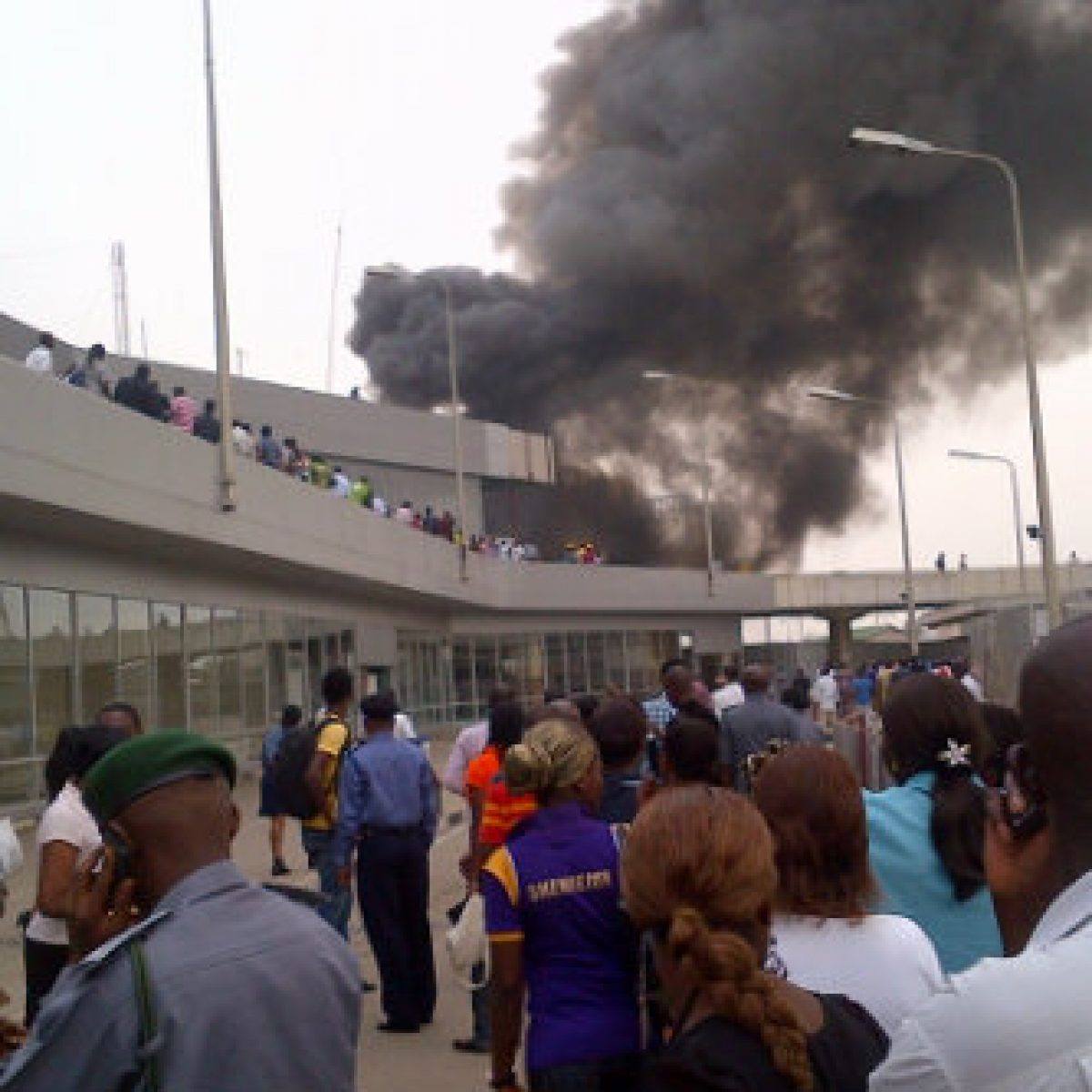
By Modupe Gbadeyanka
The Federal Airports Authority of Nigeria (FAAN) has disclosed that the fire incident at Terminal 1 of the Murtala Muhammed International Airport (MMIA), Lagos, on Monday originated from the server room on the first floor of Terminal 1.
In a statement in the wee hours of Tuesday, the agency confirmed that six casualties were recorded, involving three males and three females.
“A total of six casualties, comprising three males and three females, were recorded, all of whom are in stable condition. One affected individual has been transferred to the FAAN Headquarters Hospital for further medical evaluation and remains stable,” a part of the statement said.
FAAN noted that emergency response operations remain active, with coordinated firefighting, rescue, and safety teams continuing containment and recovery efforts.
A crane was successfully deployed to support rescue operations at the Control Tower, and all 14 persons initially trapped have been safely rescued and fully evacuated from the facility, it added.
The organisation disclosed that as an additional safety precaution, the sixth floor of the affected facility has been completely evacuated to support ongoing emergency operations and risk mitigation, adding that the fire within the departure hall is now largely under control, while responders continue close monitoring to prevent any spread to adjoining sections of the terminal.
“In line with established safety protocols, the airspace remains temporarily closed,” it stated, confirming that all emergency procedures were promptly activated and continue to collaborate with relevant emergency and support agencies to safeguard lives, infrastructure, and operational integrity.
Also, the statement revealed that the Nigerian Airspace Management Agency (NAMA) is actively working to establish a temporary Control Tower to enable the safe and timely restoration of airport operations as soon as practicable.
-

 Feature/OPED6 years ago
Feature/OPED6 years agoDavos was Different this year
-
Travel/Tourism10 years ago
Lagos Seals Western Lodge Hotel In Ikorodu
-

 Showbiz3 years ago
Showbiz3 years agoEstranged Lover Releases Videos of Empress Njamah Bathing
-

 Banking8 years ago
Banking8 years agoSort Codes of GTBank Branches in Nigeria
-

 Economy3 years ago
Economy3 years agoSubsidy Removal: CNG at N130 Per Litre Cheaper Than Petrol—IPMAN
-

 Banking3 years ago
Banking3 years agoSort Codes of UBA Branches in Nigeria
-

 Banking3 years ago
Banking3 years agoFirst Bank Announces Planned Downtime
-

 Sports3 years ago
Sports3 years agoHighest Paid Nigerian Footballer – How Much Do Nigerian Footballers Earn


